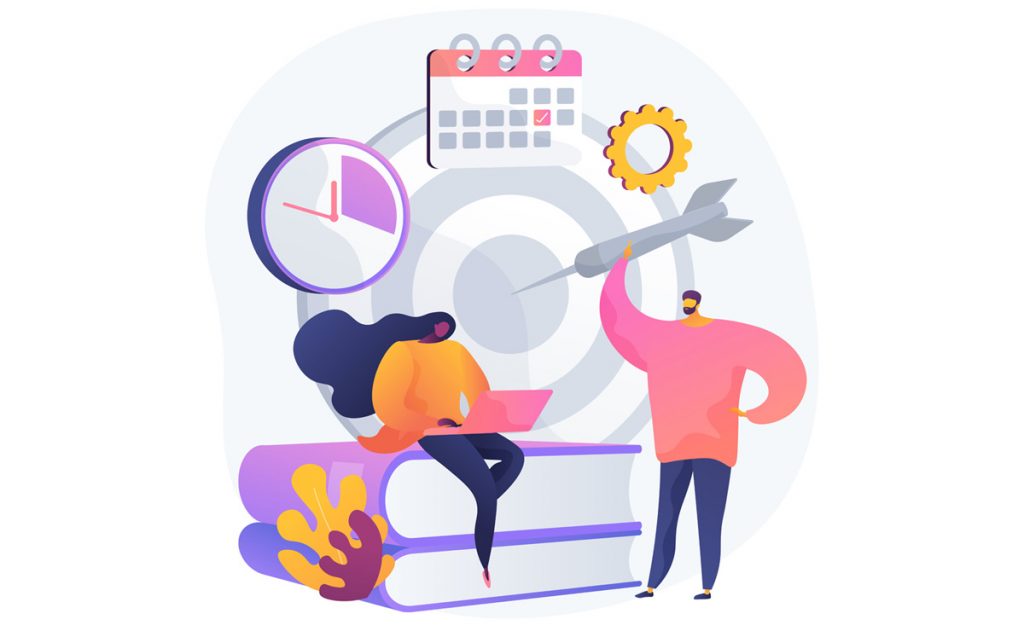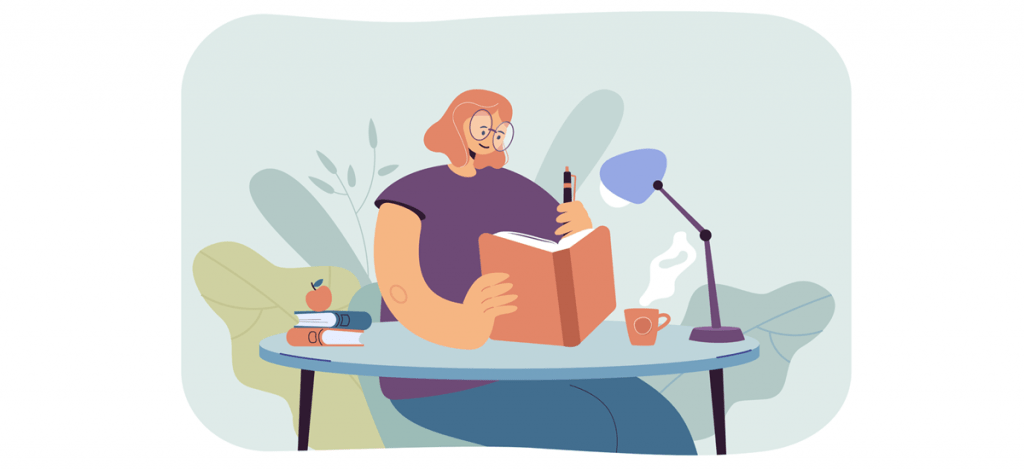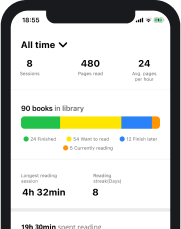Reading is perhaps the most commonly spread and most efficient learning tool we have at our disposal even from a young age. Despite that, people are starting to stray away from reading nowadays seemingly more than ever. The reasons for that are varied and differ from one person to another, but what’s for certain is that the last couple of decades has seen a decline in book reading habits of people all around the world.
Do people still read books these days? Why are people reading less now than they were just a couple of decades ago? The general consensus we keep hearing about here at Basmo is that “no one reads anymore”. We’ve been wondering if that is true, so here’s what we found during our research.
Are people reading less?
We are all under the impression that people are reading less nowadays, but is it actually true? Let’s see what recent statistics say about the way our reading habits have changed in the past decades.
In the US for example, 10% less of the adult population is reading literature nowadays compared to 20 years ago. This 10% decline represents a total loss of 20 million readers. Things are unfortunately not too different in the rest of the world either, even though exact statistics are close to impossible to find.
Generally speaking, book reading is in a slow, constant decline worldwide, and that is the result of countless factors that we will be exploring a bit further below.
One thing most of us don’t take into account when looking at these worrying reading statistics is how different reading is nowadays compared to what it was a couple of decades ago. The mediums have changed dramatically and the reading statistics only tell part of the story.
Consider this: it’s 1982 and you are looking to explore a certain topic out of curiosity, let’s say you are curious to learn how a nuclear power plant works. What are your options? You go to the library or a bookstore and you find a book about nuclear energy. Now, let’s assume you have the same curiosity in 2022 and consider your options: you could get dressed, get out of your home, go to a bookstore (if you can find one nearby), buy or borrow a book about nuclear power plants, OR you could pick up your phone and simply google “how a nuclear power plant works”.
The latter will bring up millions of results, including online articles, images, videos with cool animations which let you actually see everything you are interested in, news about the topic, and links to the best books, movies, and documentaries about nuclear reactors and power plants in case you want to go deeper into the subject. Our access to information is at a level nobody could have even imagined decades ago. Yes, we do read a lot less fiction and literature in general, but we are probably the most informed generation to have ever walked the Earth.
So, are people reading less? Creating a really eloquent statistic about reading habits nowadays is close to impossible considering the huge number of reading options we have: books, e-books, magazines, online content (blogs, articles), social media feeds, online news, and even email and chat apps. How much ACTUAL reading gets done nowadays is impossible to even estimate, but if we focus solely on book reading, then yes, the statistics are worrying and tell a sad story about our reading habits.
Are books still popular?
The rise in online content is doing what the television has done to radio back in the sixties. “Video killed the radio star” is much more than just the title of a song by The Buggles. The popularity increase of television programs has slowly moved the focus from radio to TV, leaving many radio stations with no options other than simply shutting down. While many nostalgics have dreaded this shift, the reality was changing and there was nothing to be done to stop it.
Despite following, at least to a certain extent, the same trend as the TV vs radio debate from the sixties, reading does come with a series of major differences. Books do offer a unique experience that is irreplaceable for many of us, and one that simply cannot be substituted in the long run.
So, to answer the question, yes. Books are still very much popular, even though both the number of books printed per year and the book sales are on a slightly downward pattern. Exact figures regarding the books that are printed each year are hard to find, mostly because of independent authors who are printing and publishing their books themselves, but the average number of books being officially printed and published ranges from 500 thousand to 1 million per year. If we were to include self-published authors in this, the number would get closer to 4 million.
So, do people read books anymore? The sales figures from 2021 would argue that books are still quite popular. With 825.7 million books sold in 2021, there is a slight increase in sales compared to 2020 when 757.9 million books were sold.
E-books are still no match to paperback, with only 7% of the US readers claiming to read exclusively e-books and 28% saying they read both. The convenience of the digital format is making e-book sales grow slowly and constantly one year after another.
Why don’t people read anymore?
Even though the most important thing to remember when talking about how much people read nowadays is the vast variety of choices people have and that there is a difference between the traditional literature reading and modern reading, the one thing we always keep hearing is that people don’t read anymore.
Whether that is actually true or not is not something we can answer with any sort of certainty, but what we can do (and actually did) is to find out why people don’t read anymore or at least not as much as they used to.
The daily schedule is too busy
Even though people from past generations would argue that we live the easiest times that were ever lived on this Earth, the reality is quite different. Yes, we don’t have to hunt for food and we eradicated tens of diseases that would have killed us no longer than a century ago, but we have to face completely different enemies nowadays. We have to handle stress, anxiety, depression, and exhaustion. Even though we no longer work the fields, we do find it very difficult to find any free time during the day. To be more precise, a 2019 study found that the average American only has four hours and 26 minutes of free time per week.
That is one of the reasons why people read less nowadays or even stopped reading altogether, the simple, cruel, cold fact that they don’t have enough time. As usual though, modern problems have modern solutions.
Reading apps like Basmo can help you set a daily or weekly reading schedule that matches your current daily routine in such a way that you find at least 20-30 minutes to read every day.
Simply choose the days and even different times for each day from the app’s scheduling feature and you will even be reminded through gentle notifications about your upcoming reading sessions.
Distractions
Another pretty common thing that stands in the way of a quiet and relaxing reading session is the fact that we keep getting distracted, which in the end has the effect of completely turning us off from reading altogether.
The problem with distractions is that we tend to fall victim to our own bad habits more often than not. Our phones ding every couple of minutes, with the average American getting 46 notifications every single day. That is almost 2 notifications per hour, but we all know that they are mostly concentrated during the hours when the person is awake, so the reality is that we all get a lot more notifications per hour than we actually realize.
That means that a one hour long reading session would get interrupted more than twice, on average. That is obviously far from ideal, and something we need to learn to overcome if we really want to take advantage of the many reading benefits. Switching off notifications is an obvious choice, or turning our phones to Airplane mode.
Different other forms of entertainment are more engaging
Why don’t people read anymore? It could easily also have something to do with the other forms of entertainment that are currently at our disposal. Our brains have much stronger chemical reactions when they are flooded by blue light, flashing colorful images, and perfectly engineered social media apps designed to keep us engaged and hooked with instant gratification.
Of course a flood of dopamine that comes in a much higher dose and with minimum effort is going to be preferred over one with a delayed effect and that is exactly what the comparison between modern entertainment sources and reading consists of. It’s pretty much the difference between a piece of fruit and a candy bar. We all know which one is better for us, but our brain craves the one yielding the fastest chemical results.
We sometimes think we are reading, but are we really?
Sometimes a day of web surfing and reading online articles can lead us to believe “yeah, I did quite a lot of reading today”. But did we? Well, in the technical sense, yes, we did. We read articles, blog posts, emails, and countless Wikipedia pages. We may be a lot more informed than we were in the morning when we started, but it doesn’t really mean that we did any actual reading.
By actual reading I mean literature reading, fiction reading, the activity that lets us immerse ourselves in a different world, temporarily breaking ties with the reality we live in and the stress that it generates.
Even though reading in general has many benefits for our health, studies have shown that life expectancy increase caused by reading can differ significantly for those reading fiction compared to those reading newspapers and magazines. Online reading was not included in the study, but here at Basmo, we believe that reading literature in general, and fiction in particular is the activity that has the best life improvement results.
How to read more
So, now we know: people are reading less literature, but somehow books are still quite popular. What do we do with this information, how do we interpret it?
Well, it’s pretty easy: people are still buying books for themselves or as gifts to friends and family, authors are still publishing a lot of new works year after year, but these books end up unread, on reading lists or bookshelves, because people are having a hard time focusing on reading.
What can we do? Well, there are many things we can start doing in order to become more active readers, but let’s cut to the quickest and most effective solutions, we already established that we are all busy people.
The best way to start reading more is to start using a reading app like Basmo. The logic is bulletproof: modern problems require modern solutions. We know that your time is valuable, we know the challenges you are facing as an aspiring reader, and we came up with the perfect solution.
Our app comes feature-packed to the brim, and each of these features will play a huge role in how you will develop new, healthier reading habits from now on.
Here’s what it can do for you:
- You will be able to easily create, manage and edit your reading lists directly on your smartphone
- You will be able to create a reading schedule that works for you
- You can take notes while reading
- You can track important statistics about your reading habits so you can observe and improve your performance
- You will have the option to create reading goals that will keep you motivated
- You will be able to keep a reading journal and track your emotions while reading, for a more mindful reading experience.
As you can see, there’s a lot to gain as a reader from using Basmo, and the great news is that it is optimized to perfection for the ultimate user experience, it works seamlessly on pretty much any mobile device you can think of, and it is almost guaranteed to put a big smile on your face.
Final thoughts
So, do people still read books? Yes, yes they do. Are people reading less? Sadly, again, the answer is yes. But all is not lost.
With the help of reading tracking apps like Basmo and a lot of awareness being raised lately about the importance of reading, we might still have a chance to get back to the good old times when reading was the main source of entertainment.







